Gökberk Koçak
Efficient Incremental Modelling and Solving
Sep 23, 2020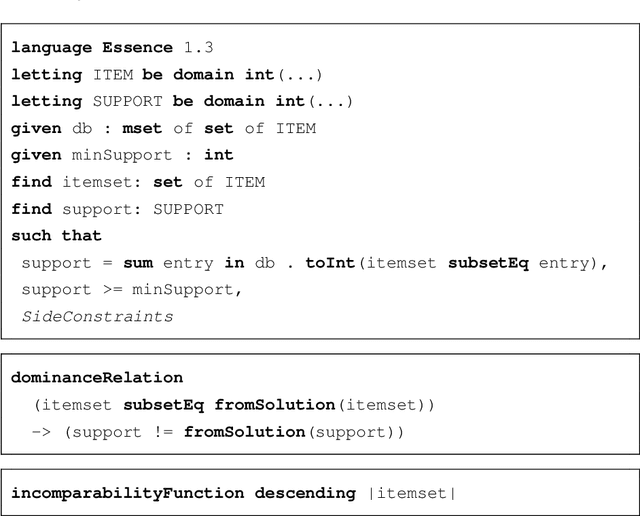

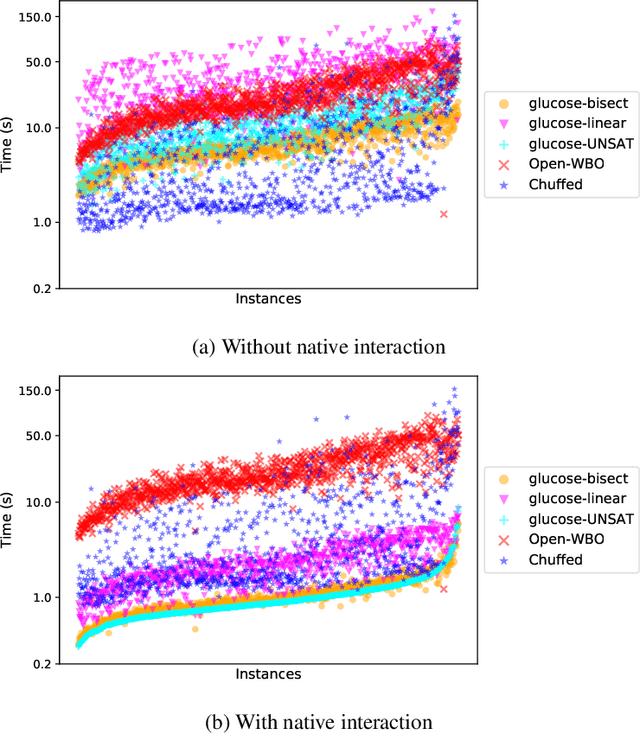
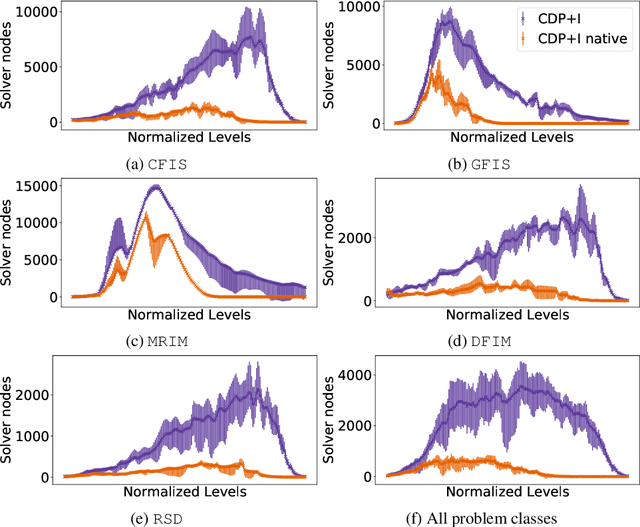
Abstract:In various scenarios, a single phase of modelling and solving is either not sufficient or not feasible to solve the problem at hand. A standard approach to solving AI planning problems, for example, is to incrementally extend the planning horizon and solve the problem of trying to find a plan of a particular length. Indeed, any optimization problem can be solved as a sequence of decision problems in which the objective value is incrementally updated. Another example is constraint dominance programming (CDP), in which search is organized into a sequence of levels. The contribution of this work is to enable a native interaction between SAT solvers and the automated modelling system Savile Row to support efficient incremental modelling and solving. This allows adding new decision variables, posting new constraints and removing existing constraints (via assumptions) between incremental steps. Two additional benefits of the native coupling of modelling and solving are the ability to retain learned information between SAT solver calls and to enable SAT assumptions, further improving flexibility and efficiency. Experiments on one optimisation problem and five pattern mining tasks demonstrate that the native interaction between the modelling system and SAT solver consistently improves performance significantly.
Towards Improving Solution Dominance with Incomparability Conditions: A case-study using Generator Itemset Mining
Oct 01, 2019

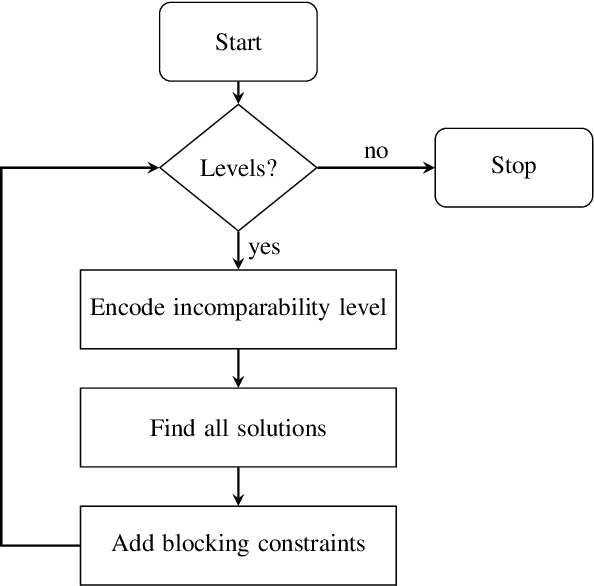
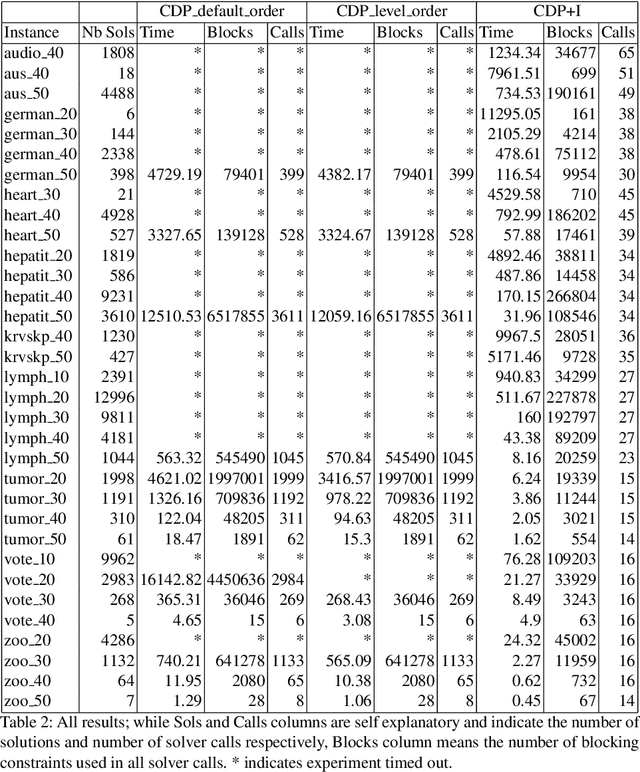
Abstract:Finding interesting patterns is a challenging task in data mining. Constraint based mining is a well-known approach to this, and one for which constraint programming has been shown to be a well-suited and generic framework. Dominance programming has been proposed as an extension that can capture an even wider class of constraint-based mining problems, by allowing to compare relations between patterns. In this paper, in addition to specifying a dominance relation, we introduce the ability to specify an incomparability condition. Using these two concepts we devise a generic framework that can do a batch-wise search that avoids checking incomparable solutions. We extend the ESSENCE language and underlying modelling pipeline to support this. We use generator itemset mining problem as a test case and give a declarative specification for that. We also present preliminary experimental results on this specific problem class with a CP solver backend to show that using the incomparability condition during search can improve the efficiency of dominance programming and reduces the need for post-processing to filter dominated solutions.
 Add to Chrome
Add to Chrome Add to Firefox
Add to Firefox Add to Edge
Add to Edge